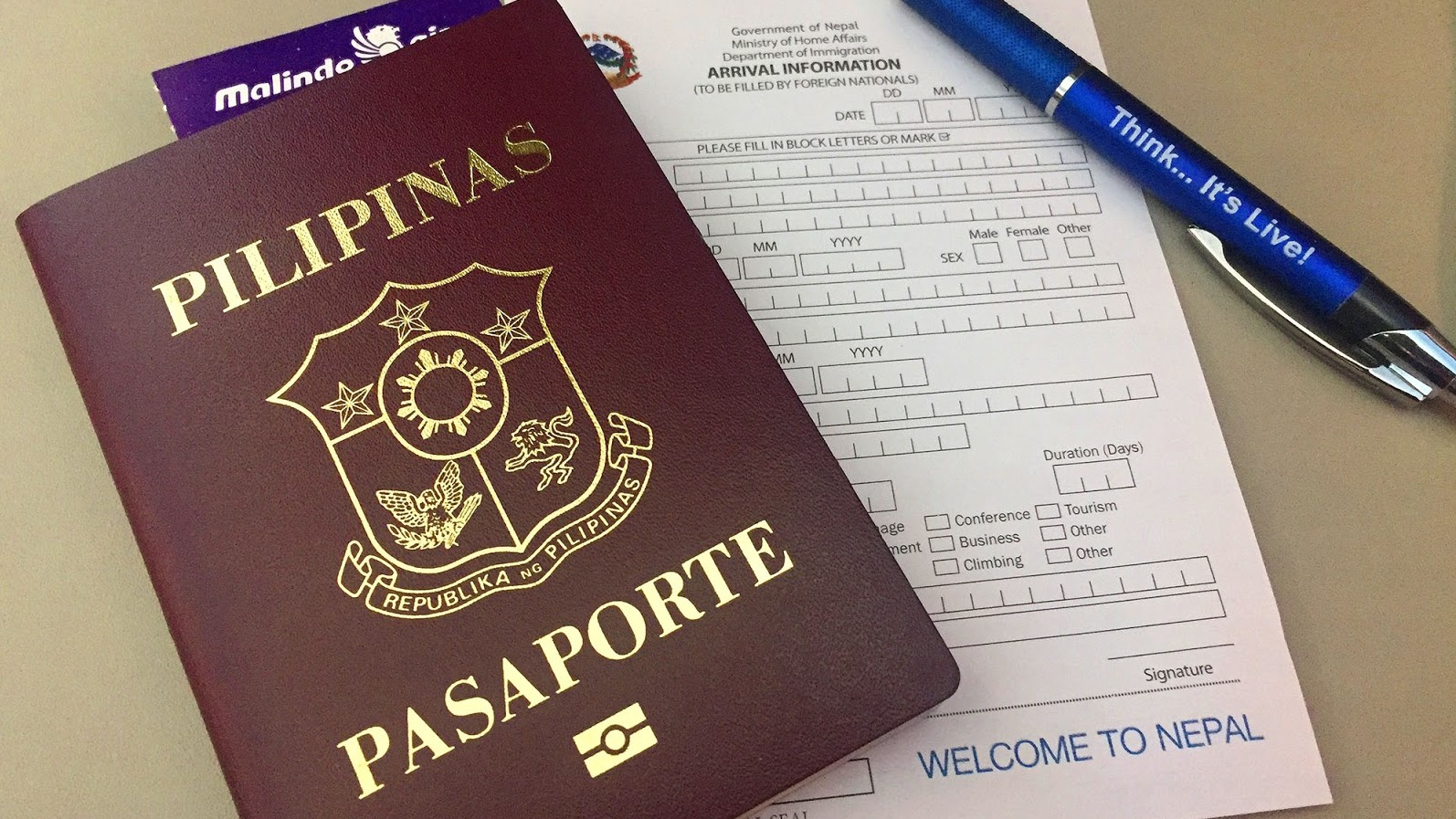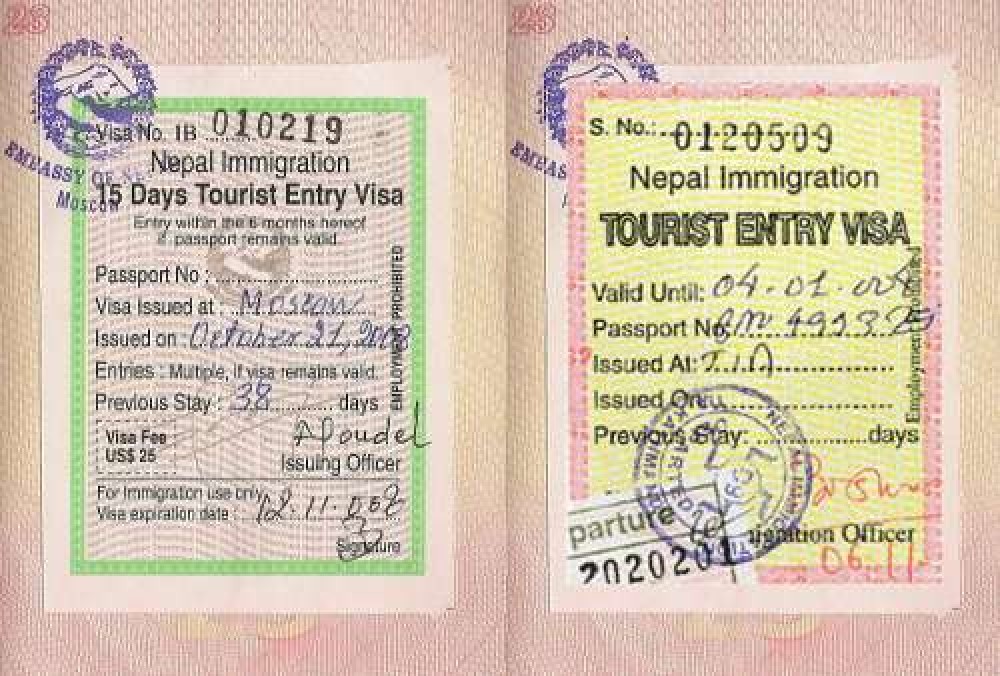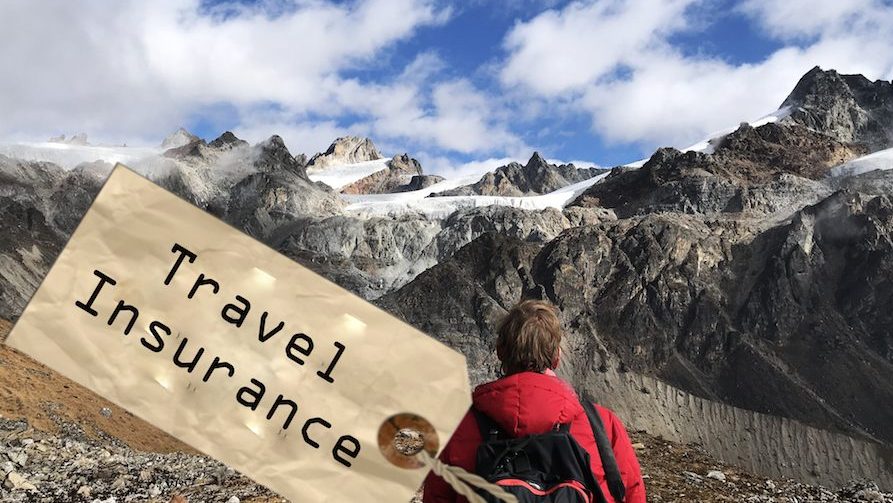Navigating the passport and visa requirements is an essential step before traveling to any foreign destination, and Nepal is no exception. Before traveling to Nepal, it is essential to have a valid passport and obtain the appropriate visa.
Here are the steps you should follow:
Passport:
- Ensure that your passport is valid for at least six months from your intended date of entry into Nepal.
- Have at least two blank visa pages available for entry and exit stamps.

Visa
Most nationalities need a visa to enter Nepal. You can obtain a Nepalese visa in three ways:

Visa on arrival
Nepal provides a Visa on Arrival facility for citizens of most countries at Tribhuvan International Airport in Kathmandu and several land border crossings.
To expedite the process, you can fill out the online application form before your arrival, which remains valid for 15 days from the date of submission.
Prepare to present a passport-sized photo, your passport, and the visa fee, which varies depending on the duration of your stay.
- 15-day multiple-entry visa: $30 USD
- 30-day multiple-entry visa: $50 USD
- 90-day multiple-entry visa: $125 USD Note that visa fees are subject to change, so it's wise to check the current rates before traveling.
Online visa application
You can also apply for a visa online through the Nepal Department of Immigration's website (Online Visa Application). The online application is valid for 15 days from the date of submission, so plan accordingly. You'll still need to complete the visa process upon arrival in Nepal by presenting your passport, a printed copy of the online application confirmation, a passport-sized photo, and a visa fee in cash (USD is preferred).
Types of Visas:
- Tourist Visa: Common for travelers, with durations of 15, 30, or 90 days.
- Transit Visa: Usually valid for 24 hours, it is provided for those merely passing through.
- Trekking/Expedition Visa: Necessary for those partaking in trekking or mountaineering activities.
- Business Visa: For foreigners engaged in business activities in Nepal.
- Study Visa: For those pursuing academic programs in Nepal.
Exceptions:
- Citizens of Afghanistan, Cameroon, Ethiopia, Ghana, Iraq, Liberia, Nigeria, Palestine, Somalia, Syria, and Zimbabwe are not eligible for the Visa on Arrival. They need to apply in advance at a Nepalese embassy or consulate in their home country.
- SAARC member countries' citizens (except Afghanistan) can get a 30-day visa for free upon arrival.
- Citizens of India do not require a visa to enter Nepal but might need identification like a passport or an election card.
Overstaying: Overstaying beyond your visa's validity will result in a fine, and you'll need to regularize your visa before departure.
Always verify the latest visa and immigration regulations from the official website of the Department of Immigration of Nepal or consult the nearest Nepalese embassy or consulate before your travel, as policies can change.
Special permits
Nepal, with its captivating landscapes and ancient cultures, has areas that are designated as 'restricted' to protect both the environment and indigenous cultures. Traveling or trekking in these areas requires special permits, and the rules are stringent. Here's what you need to know:
Restricted Area Permit (RAP): This permit is necessary if you want to trek in any restricted area. The main aim of the RAP is to protect the environment, local culture, and traditions from outside influences.
Group Permits: Many restricted areas require you to be in a group, typically of two or more people, accompanied by a registered guide.
Multiple Permits: Some treks may cross multiple restricted areas, so you might need more than one permit.
Duration: Permits are generally issued for a specific number of days, and you're expected to complete your trek within that time frame.
Documentation: Along with the application, you'll typically need to provide:
- A copy of your passport
- A copy of your Nepalese visa
- Passport-sized photos
- A detailed itinerary
Proof of travel insurance that covers emergency evacuation.
Where to Obtain: While you can get some permits in Kathmandu at the Department of Immigration, it's often easier to work with a registered trekking agency, which can handle the paperwork on your behalf.
Additional Permits: On top of the RAP, you might also need other permits like the Trekkers' Information Management System (TIMS) card or conservation area permits, depending on your route.
Checkpoints: There will be checkpoints along your trek where officials will verify your permit. Always keep it accessible.
Safety: Some restricted areas are near the Nepal-Tibet border. It's crucial to stay on the Nepalese side and avoid any border disputes.
Important Note: Always verify the current requirements, as rules and regulations can change. Furthermore, restricted areas can pose challenges in terms of altitude, weather, and remoteness. Ensure you're adequately prepared, and consider hiring a local guide to enhance both your safety and experience.
Travel Insurance
Traveling to a diverse and adventurous destination like Nepal necessitates thorough preparation, and paramount among the essentials is travel insurance. With its vast trekking trails, high-altitude terrains, and adrenaline-pumping activities, ensuring you have comprehensive coverage can be the difference between an exhilarating experience and an unforeseen crisis. Here's why securing the right policy is critical:
-
Comprehensive Coverage: Your policy should cater to a broad spectrum of scenarios, encompassing medical emergencies, unexpected evacuation needs, and repatriation provisions.
-
Remote Areas and Adventure Activities: When venturing into Nepal's isolated regions or participating in adventure activities, the inherent risks accentuate the importance of having specialized insurance coverage.
-
Check Policy Details: It's crucial to scrutinize policy specifics to ascertain coverage for activities you plan to undertake, be it high-altitude trekking or adrenaline-charged sports.
-
Emergency Assistance: A pivotal feature of a robust travel insurance policy is 24/7 emergency assistance, ensuring immediate help during crises, irrespective of time or place.

Staying updated with the visa regulations and understanding any potential changes is vital when planning a trip to Nepal or any foreign country. As these requirements can shift over time, frequent checks on official sources are crucial. Moreover, your government's travel advice website offers not only visa updates but also essential safety advisories that help ensure a smooth and informed travel experience. Always prioritize gathering accurate and recent information to avoid unexpected issues during your journey.
Important Articles regarding traveling in Nepal
Introduction of Nepal
FOODS IN NEPAL
Before You Plan Nepal Trip
While You are in Nepal
Before Traveling Nepal
If you need any further information, please contact us, Email: [email protected], Phone: +977- 985 100 5129 (WhatsApp)




